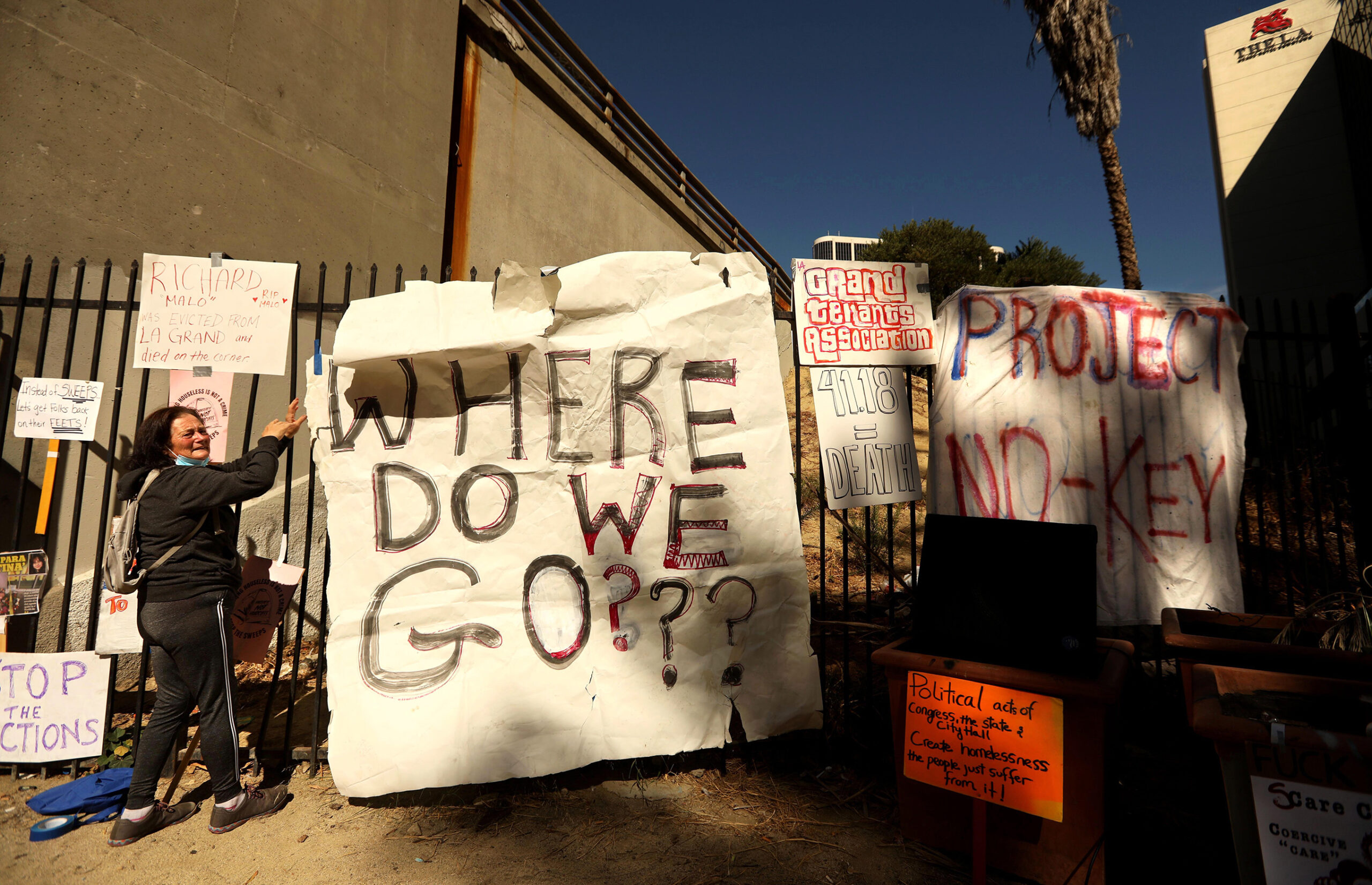Politics & Government
Business Groups Falsely Claim L.A. Affordable Housing Measure Will Raise Property Taxes
Measure ULA would fund affordable housing through a tax on real estate sales of more than $5 million.

A Los Angeles ballot measure to fund affordable housing by imposing a new tax on property sales or transfers exceeding $5 million has been targeted by business and real estate groups in an advertising campaign calling it “the largest property tax increase in L.A. history.”
That claim is false. Measure ULA is not a property tax, which is an annual assessment on all property that is used for general government functions. If passed by city voters on Nov. 8, the measure would be a one-time tax on sales that would go into a special fund dedicated to address the city’s housing and homelessness crisis.
Join our email list to get the stories that mainstream news is overlooking.
Sign up for Capital & Main’s newsletter.
“Calling it a property tax is a dishonest attempt to scare homeowners,” said Peter Dreier, an Occidental College professor who co-authored a report on the impact of the measure, and is part of United to House L.A., the group working for its passage. “Nobody’s property taxes will be impacted,” Dreier said.
California’s cities and counties actually have no authority to raise property taxes. That can only happen if the state’s voters change Proposition 13 by a statewide constitutional amendment.
The study by Dreier and researchers from UCLA, USC and Occidental estimates that Measure ULA would affect less than 3% of single family home and condominium unit sales. That’s because in fiscal year 2021-22, only 727 houses and condos sold for more than $5 million, which was 2.6% of the 28,378 homes sold in the city.
The measure would generate about $900 million annually to be used to build more low income housing and provide rent relief for vulnerable renters, particularly seniors, according to the study. The ballot measure includes a provision to create an oversight commission to make sure that the funds are used the way the measure requires.
Measure ULA is supported by the United Way of Greater Los Angeles, many community and tenants rights groups, nonprofit developers of affordable housing, nonprofit providers of homeless services, labor unions and many faith-based groups.
The two opposition committees waging the anti-ULA campaign are called Angelenos for Affordability and Angelenos Against Higher Property Taxes. The largest donors so far, according to filings with the Los Angeles Ethics Commission, include:
- The California Business Roundtable, the lobby group for the state’s largest businesses ($2,276,098)
- Westfield Property Management, which owns 82 shopping centers around the world, including Westfield Century City, and which intends to sell all its malls in the U.S. by next year ($541,118)
- National Association of Realtors, the national lobby group for real estate agents ($544,328)
- California Association of Realtors, the state lobby group for real estate agents ($469,000)
Other six-figure donors include the California Business Properties Assn. ($300,000), commercial real estate lobby, self-storage company Public Storage ($395,000), developer Hudson Properties ($250,000) and real estate investor AP Properties ($100,000).
The California Business Roundtable has also received direct support from opponents of Measure ULA. For example, in addition to its direct $50,000 donation to the anti-ULA campaign, Kilroy Realty in October donated $555,000 to the California Business Roundtable PAC. Similarly, Douglas Emmett Properties, which directly contributed $50,000 to the anti-ULA campaign, recently donated $1,000,000 to the California Business Roundtable PAC.
Blackstone — the real estate and private equity investment firm — has not made a direct contribution to either of the anti-ULA committees, but on July 1, it donated $1 million to the California Business Roundtable PAC. Blackstone became one of the nation’s largest landlords after purchasing a vast inventory of properties after the 2008 real estate crash when many homeowners were facing foreclosure. It bought at least 82,000 homes, including thousands in L.A. A U.N. report on Blackstone states that its subsidiary Invitation Homes raised rents at almost double Los Angeles’ average.
The California Business Roundtable did not respond to requests for comment.
Copyright 2022 Capital & Main

-

 Column - State of InequalityJanuary 22, 2026
Column - State of InequalityJanuary 22, 2026On Eve of Strike, Kaiser Nurses Sound Alarm on Patient Care
-

 The SlickJanuary 20, 2026
The SlickJanuary 20, 2026The Rio Grande Was Once an Inviting River. It’s Now a Militarized Border.
-

 Latest NewsJanuary 21, 2026
Latest NewsJanuary 21, 2026Honduran Grandfather Who Died in ICE Custody Told Family He’d Felt Ill For Weeks
-

 Latest NewsJanuary 22, 2026
Latest NewsJanuary 22, 2026‘A Fraudulent Scheme’: New Mexico Sues Texas Oil Companies for Walking Away From Their Leaking Wells
-

 The SlickJanuary 23, 2026
The SlickJanuary 23, 2026Yes, the Energy Transition Is Coming. But ‘Probably Not’ in Our Lifetime.
-

 The SlickJanuary 27, 2026
The SlickJanuary 27, 2026The One Big Beautiful Prediction: The Energy Transition Is Still Alive
-

 Column - State of InequalityJanuary 29, 2026
Column - State of InequalityJanuary 29, 2026Are California’s Billionaires Crying Wolf?
-

 Latest NewsFebruary 3, 2026
Latest NewsFebruary 3, 2026Amid the Violent Minnesota Raids, ICE Arrests Over 100 Refugees, Ships Many to Texas

